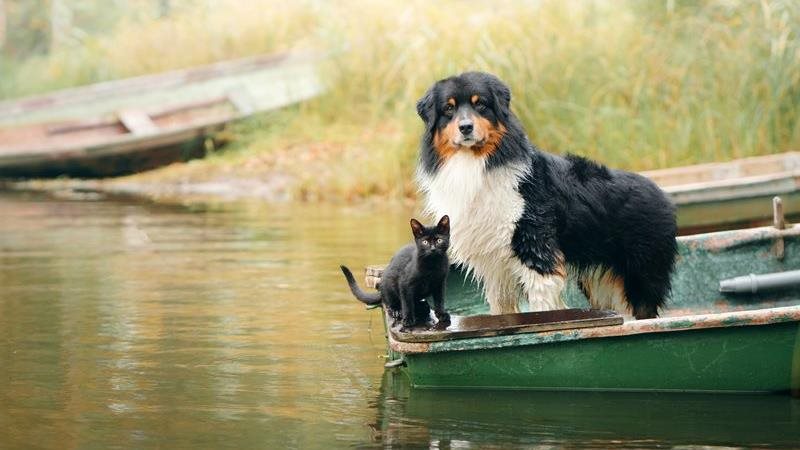
As the weather warms up and cabin season begins, it’s important to consider your pet’s safety while enjoying the great outdoors. From potential hazards in the woods to ensuring a safe environment at your cottage, here are key tips to keeping your pet safe at the lake.
Water safety for pets
Lakes and rivers are a dog’s dream, but they can be dangerous. Always ensure your dog has been properly introduced to swimming and supervise them near water. Consider using a life jacket while on boats or docks if your dog isn’t a swimmer. Be cautious of strong currents, sudden drop-offs, and potentially harmful algae blooms like blue-green algae. Always make sure your pet has access to lots of fresh water to stay hydrated since swimming can really get their heart rate up!
Prepare for wildlife encounters
Cabin settings often mean closer encounters with wildlife, which can pose risks to your pet. Keep your dog leashed, especially in areas where bears, coyotes, or other wild animals are known to roam. Not only can wildlife be dangerous, but encounters can lead to injuries or stress for your pet. Be sure to educate yourself on local wildlife and how to handle any potential encounters.
Beware of Blastomycosis
Blastomycosis, a fungal infection caused by Blastomyces dermatitidis, thrives in moist soil and decaying organic matter, commonly found in wooded areas. Dogs are particularly susceptible, so avoid letting them dig in loose soil or explore damp areas. If your dog shows signs of lethargy, coughing, or changes in appetite after a trip to the cottage, consult your veterinarian as soon as possible. They might be at risk!
Keep your cottage pet-friendly
Before settling in, pet-proof your cabin by removing any toxic plants, securing loose cables, and ensuring any cleaning supplies or pest poison are out of reach. Create a cozy space for your pet to rest, and always have a first aid kit on hand, including items specific to pet care.
Preventing ticks
Ticks and fleas are prevalent in wooded areas. Regularly check your pet for ticks, especially after outdoor adventures. Ticks are good at hiding so make sure you give your pet a thorough pet-down. When in doubt, pest preventative treatments work well to keep your pet comfortable and reduce the risk of tick-borne diseases.
Emergency preparedness
Accidents can happen anywhere and at any time! So, make sure you’re prepared for emergencies. Familiarize yourself with the nearest veterinary clinics and have a plan in case of injury or illness. Be sure your pet’s ID tags are up to date and consider microchipping for extra security.
Conclusion
Visits to the cabin hold a special place in many families' hearts, and their pets often love it just as much. By taking proactive steps to ensure your pet’s safety while enjoying the beauty of Canada’s landscapes, you can create memorable and happy cabin experiences. Always remember that investing in pet health insurance can provide peace of mind, ensuring that you’re prepared for any unexpected health issues during your adventures. Safe travels and happy cabin season to all!
